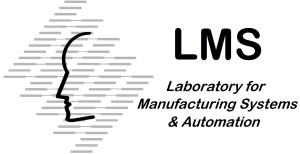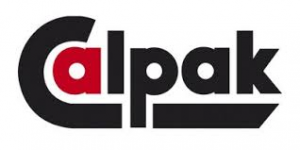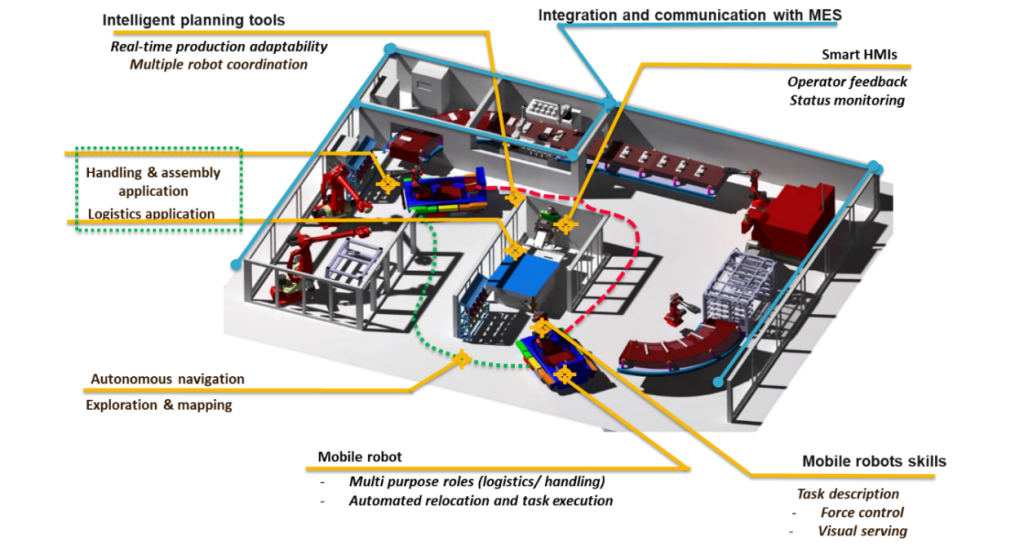
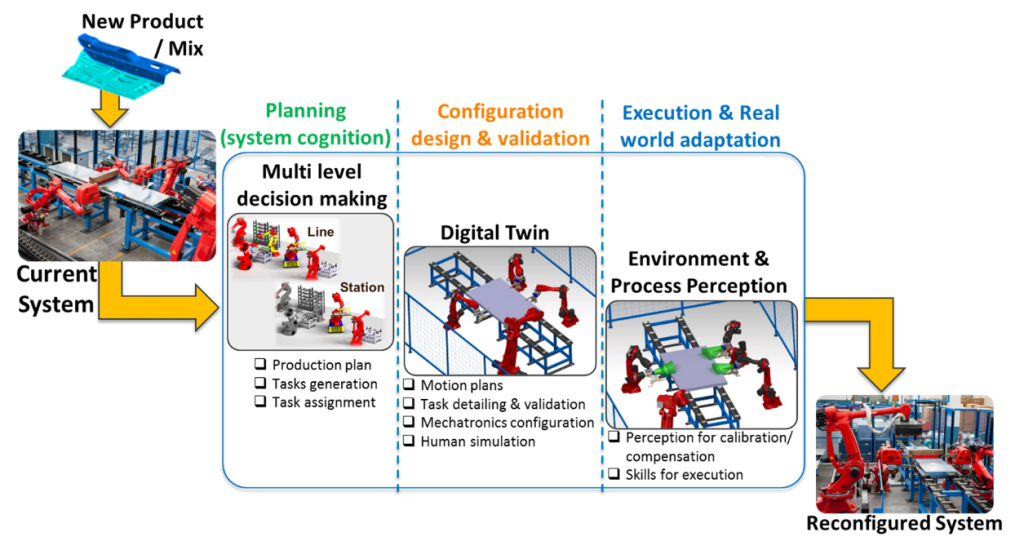
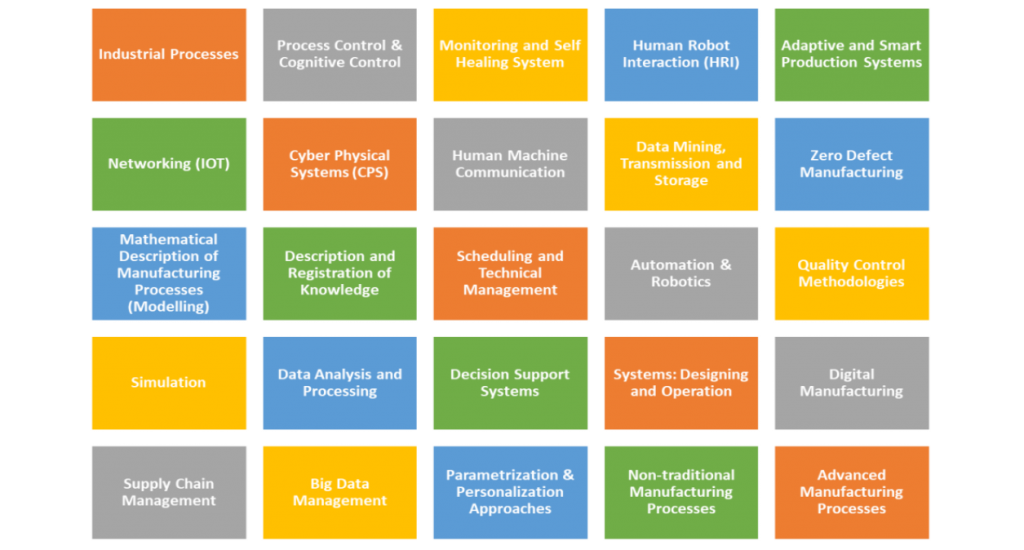

HEPHAESTUS Smart Manufacturing Cluster is an Innovation Cluster coordinated by the Laboratory for Manufacturing Systems and Automation (LMS) of University of Patras and includes Greek manufacturing companies and technology providers. The cluster facilitates the interaction among the partners in order to assist them for making high added value products and services. These are based on Advanced Manufacturing Technologies, Digital Manufacturing and the Teaching Factory concept.
Hephaestus SMC Pylons
Hephaestus SMC will facilitate a company to include Advanced Manufacturing Technologies into its production system.
Digitalization and monitoring of manufacturing processes via innovative technologies like ΙοΤ (Internet of Things).
The educational model “Teaching Factory – TF” brings in contact manufacturing industries with university students and researchers.
There are several factors that prevent a company from incorporating a new technology into its production system. This Innovation Cluster will be a facilitator for overcoming these difficulties. The main deterrent factors may be classified as: Technological Factors (Availability of trained personnel, Productivity, Reliability, Flexibility, Development of conventional methods), Economic Factors (Cost / profit margin reduction of conventional methods, limitation of equipment suppliers, Specialized Social Factors (Culture, Fear of Innovation, Technological Unemployment).
Advanced production processes such as 3D printing (Additive Manufacturing), allow the construction of complex geometries, the integration of holistic design, the implementation of lightweight / simple constructions, the minimization of productive and post processing stages, the abolition of retaining devices, and the minimization of changeover and installation such as the materials use optimizing.
In addition, the use of processes and methods for the synchronization of production phases and its conversion from intermittent / phase to continuous flow production is a point of interest for the manufacturing industry. Finally, the production monitoring systems and self-healing systems such as the use of systems and production processes that provides possibilities of ‘healing’ defects and deviations are very interesting as they aim at optimizing quality and increasing productivity.
A typical example is the use of IoT for interconnection to turn the sale of industrial equipment into a service. High Performance Computing Systems (HPCS) could be integrated into Advanced Processing Technology in a variety of ways.One of them is the analysis of large volume data and the simulation of complex systems (processes – systems). Big data is a widely used term, as data floods a business and / or industry on a daily basis. Big data analytics is very useful for drawing conclusions for optimized tactical and strategic decision making.The above tools are the basis for creating smart solutions, upgrading and modernizing processes / production devices in order to increase competitiveness. More specifically, the modeling and simulation of complex production processes using advanced analysis methods (e.g. neural networks, artificial intelligence systems, molecular dynamics, hybrid methods, finite elements) are key development tools for increasing the productivity of manufacturing industries.The creation of appropriate Zero-Defect Manufacturing techniques can be achieved through production monitoring devices and decision-making systems for the production processes adaptive control. In addition, the use of the advanced analysis methods that mentioned above is a key lever for the design and development of production processes focused on reducing the energy consumption and the environmental footprint.
From Industry to Education
The Teaching Factory, gives students the opportunity to deepen their knowledge on specific topics and apply them in practice, facing real industrial problems posed by industry. The industrial problem is fully defined by the industrial body and the students make a plan to solve it. During the solution of a problem the students present the state of the solution that they prepare at regular intervals and the industrial body evaluates it while at the same time providing instructions where required. Students’ engagement with such issues results in an understanding of the operation of production systems directly by resolving real industrial issues.
From Education to Industry
From Industry side, the knowledge and research results which created through the Teaching Factory framework are transferred to the industrial organisms resulting in both technological upgrade and the pilot solution of issues that require new technologies. To create the above knowledge transfer system, the necessary infrastructure is required to enable direct ommunication between Industry and Universities.
Coordinator
LMS is focused on research and development in cutting edge scientific and technological fields. LMS is involved in a number of research projects funded by the CEU and European industrial partners. Particular emphasis is given to the co-operation with the European industry as well as with a number of “hi-tech” firms.
Partners
Hephaestus SMC
Innovative Cluster for Smart Manufacturing
University of Patras Campus
Rio, Patra 26504


